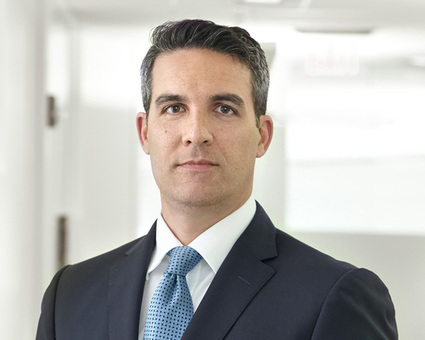Foreclosures: Rulings Favor Lender's Stake
Almost exactly six years ago, the Fourth District Court of Appeals struck fear and panic into the hearts of successor lenders. In Glarum v. La Salle Bank, the court reversed a final judgment in the bank's favor because the bank's witness did not have the requisite knowledge of the prior servicer's systems to authenticate certain business records under the business records exception codified in Section 90.803(6)(a), Fla. Stat.
December 19, 2017 at 10:33 AM
5 minute read

Almost exactly six years ago, the Fourth District Court of Appeals struck fear and panic into the hearts of successor lenders. In Glarum v. La Salle Bank, the court reversed a final judgment in the bank's favor because the bank's witness did not have the requisite knowledge of the prior servicer's systems to authenticate certain business records under the business records exception codified in Section 90.803(6)(a), Fla. Stat.
As the sky fell, some lenders and their counsel wondered how they would ever obtain another foreclosure judgment. With so many banks failed or failing, how would a successor lender track down employees of the former lender to authenticate business records of the failed institution? And how would successor record custodians ever gain personal knowledge of the prior lender's systems and record-keeping practices? Conversely, defense attorneys rejoiced that an appellate court had finally slammed the brakes on the “rocket docket”—a pejorative term used to describe lender-friendly judicial rubber-stamping of foreclosure judgments in the name of expediency.
Time would soon prove lender's fears overblown, and defense counsel's dreams dashed. A series of appellate rulings have clarified the admissibility of business records, especially in the foreclosure context. Beginning with Cayea v. CitiMortgage (2014), continuing with Bank of New York v. Calloway (2015, and culminating with last week's Third District Court of Appeals opinion in Deutsche Bank v. de Brito, lenders now have a clear road map to lay the foundation for the admissibility of business records in the foreclosure context.
The facts in Glarum were exceptionally bad for the plaintiff lender. The bank's witness responded with “no idea” and “I don't know” to several critical foundational questions. The Fourth DCA was left with little choice but to reverse. In Cayea, the court noted that the witness did not have a “total lack of knowledge as to how his company's own data was produced”—distinguishing the testimony from that of the witness in Glarum. Furthermore, the court demonstrated that his familiarity with the bank's record-keeping system and the process for uploading payment information was enough to admit the records. In Calloway, the witness did not have personal knowledge of the loan file or its accuracy. He did, however, have personal knowledge of the process used to verify the trustworthiness of the business records, essentially stating that he was personally aware that employees reviewed loan files for accuracy. Again, the court held that the records should have been admitted.
Following the Fourth District Court of Appeals' reasoning, the Third District Court of Appeals in de Brito explained that the witness authenticating the records need not be the person who actually prepared the business records. The witness “just needs to be well enough acquainted with the activity to testify that the successor business relies on those records, and that the circumstances indicate the records are trustworthy.”
In Glarum's immediate aftermath, many practitioners seeking to admit business records scrambled to search for witnesses with personal knowledge of the boarding process (transferring loan data from one system to another), the loan payment history, and the loan default. Rulings from both the Third and Fourth DCAs remind attorneys that Section 90.803(6) does not require personal knowledge. As business records are hearsay, personal knowledge is not a prerequisite for admission. These records are admissible under Section 90.803(6) as an exception to the hearsay rule.
Generally speaking, a lender's records custodian or other witness need only be familiar with and have an understanding of how the business records are kept and to testify that the records were kept in the ordinary course of the company's regularly conducted business activity. Further, the witness must have familiarity with the procedures that the lender takes to ensure that the information fed into its system is accurate. Finally, the witness will need to testify that the business records were made from information transmitted by a person with knowledge. Importantly, personal knowledge of the accuracy of the actual data is not a prerequisite to admission.
These cases demonstrate that when seeking to admit business records, proper preparation of the witness is paramount. A Glarum-like fiasco easily could be avoided, provided that counsel and the testifying witness have a clear understanding of the prior lender and foreclosing lender's loan boarding systems and processes. The witness should be prepared to testify to the accuracy of the foreclosing lender's systems and the trustworthiness of the prior lender's records. Calloway is particularly instructive for practitioners both when drafting an affidavit of indebtedness and preparing for trial.
Conversely, in order to keep these records out, defense attorneys will need to introduce evidence that the lender's systems are suspect or not trustworthy. In most cases, this will be an uphill battle. Yet, those institutions with “robo-signing” and other banned or suspect practices in their history will continue to have the trustworthiness of their business records challenged.
Christopher Spuches is a partner at Ehrenstein Charbonneau Calderin. He represents businesses in a broad range of commercial disputes, with specialization in commercial real estate, hospitality, partnership disputes and representation of fiduciaries.
This content has been archived. It is available through our partners, LexisNexis® and Bloomberg Law.
To view this content, please continue to their sites.
Not a Lexis Subscriber?
Subscribe Now
Not a Bloomberg Law Subscriber?
Subscribe Now
NOT FOR REPRINT
© 2025 ALM Global, LLC, All Rights Reserved. Request academic re-use from www.copyright.com. All other uses, submit a request to [email protected]. For more information visit Asset & Logo Licensing.
You Might Like
View All
South Florida Real Estate Lawyers See More Deals Flow, But Concerns Linger
6 minute read
Vedder Price Shareholder Javier Lopez Appointed to Miami Planning, Zoning & Appeals Board
2 minute read
Real Estate Trends to Watch in 2025: Restructuring, Growth, and Challenges in South Florida
3 minute readTrending Stories
- 1Public Notices/Calendars
- 2Wednesday Newspaper
- 3Decision of the Day: Qui Tam Relators Do Not Plausibly Claim Firm Avoided Tax Obligations Through Visa Applications, Circuit Finds
- 4Judicial Ethics Opinion 24-116
- 5Big Law Firms Sheppard Mullin, Morgan Lewis and Baker Botts Add Partners in Houston
Who Got The Work
J. Brugh Lower of Gibbons has entered an appearance for industrial equipment supplier Devco Corporation in a pending trademark infringement lawsuit. The suit, accusing the defendant of selling knock-off Graco products, was filed Dec. 18 in New Jersey District Court by Rivkin Radler on behalf of Graco Inc. and Graco Minnesota. The case, assigned to U.S. District Judge Zahid N. Quraishi, is 3:24-cv-11294, Graco Inc. et al v. Devco Corporation.
Who Got The Work
Rebecca Maller-Stein and Kent A. Yalowitz of Arnold & Porter Kaye Scholer have entered their appearances for Hanaco Venture Capital and its executives, Lior Prosor and David Frankel, in a pending securities lawsuit. The action, filed on Dec. 24 in New York Southern District Court by Zell, Aron & Co. on behalf of Goldeneye Advisors, accuses the defendants of negligently and fraudulently managing the plaintiff's $1 million investment. The case, assigned to U.S. District Judge Vernon S. Broderick, is 1:24-cv-09918, Goldeneye Advisors, LLC v. Hanaco Venture Capital, Ltd. et al.
Who Got The Work
Attorneys from A&O Shearman has stepped in as defense counsel for Toronto-Dominion Bank and other defendants in a pending securities class action. The suit, filed Dec. 11 in New York Southern District Court by Bleichmar Fonti & Auld, accuses the defendants of concealing the bank's 'pervasive' deficiencies in regards to its compliance with the Bank Secrecy Act and the quality of its anti-money laundering controls. The case, assigned to U.S. District Judge Arun Subramanian, is 1:24-cv-09445, Gonzalez v. The Toronto-Dominion Bank et al.
Who Got The Work
Crown Castle International, a Pennsylvania company providing shared communications infrastructure, has turned to Luke D. Wolf of Gordon Rees Scully Mansukhani to fend off a pending breach-of-contract lawsuit. The court action, filed Nov. 25 in Michigan Eastern District Court by Hooper Hathaway PC on behalf of The Town Residences LLC, accuses Crown Castle of failing to transfer approximately $30,000 in utility payments from T-Mobile in breach of a roof-top lease and assignment agreement. The case, assigned to U.S. District Judge Susan K. Declercq, is 2:24-cv-13131, The Town Residences LLC v. T-Mobile US, Inc. et al.
Who Got The Work
Wilfred P. Coronato and Daniel M. Schwartz of McCarter & English have stepped in as defense counsel to Electrolux Home Products Inc. in a pending product liability lawsuit. The court action, filed Nov. 26 in New York Eastern District Court by Poulos Lopiccolo PC and Nagel Rice LLP on behalf of David Stern, alleges that the defendant's refrigerators’ drawers and shelving repeatedly break and fall apart within months after purchase. The case, assigned to U.S. District Judge Joan M. Azrack, is 2:24-cv-08204, Stern v. Electrolux Home Products, Inc.
Featured Firms
Law Offices of Gary Martin Hays & Associates, P.C.
(470) 294-1674
Law Offices of Mark E. Salomone
(857) 444-6468
Smith & Hassler
(713) 739-1250







